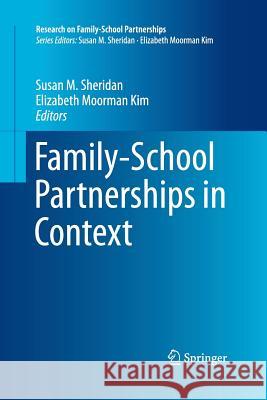Family-School Partnerships in Context » książka
topmenu
Family-School Partnerships in Context
ISBN-13: 9783319344102 / Angielski / Miękka / 2016 / 124 str.
Kategorie:
Kategorie BISAC:
Wydawca:
Springer
Seria wydawnicza:
Język:
Angielski
ISBN-13:
9783319344102
Rok wydania:
2016
Wydanie:
Softcover Repri
Ilość stron:
124
Waga:
0.20 kg
Wymiary:
23.39 x 15.6 x 0.76
Oprawa:
Miękka
Wolumenów:
01
Dodatkowe informacje:
Wydanie ilustrowane











